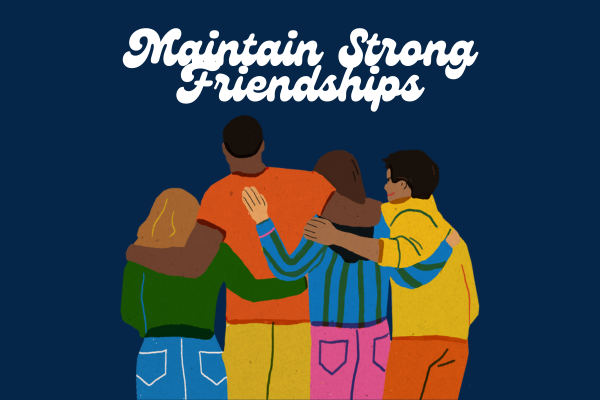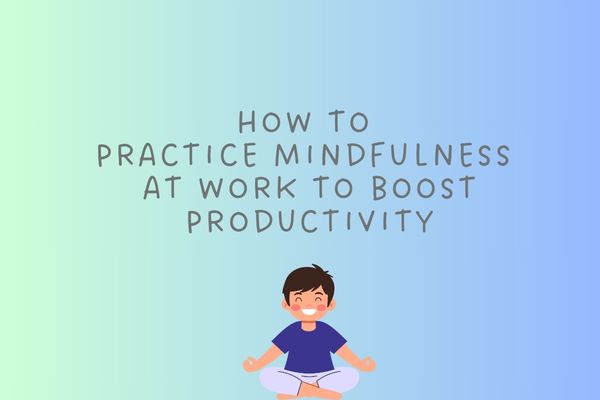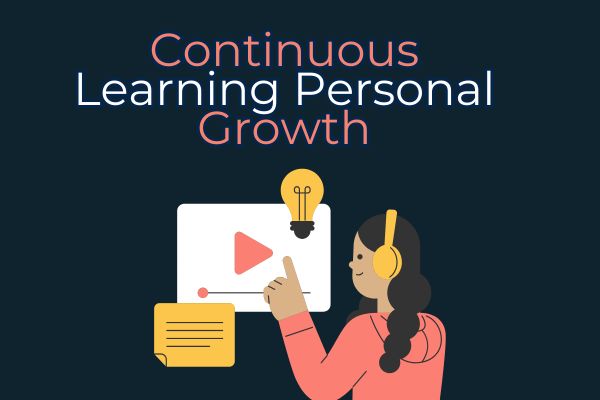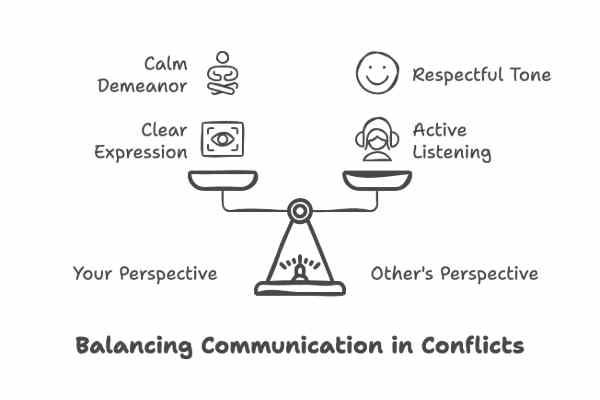In today’s fast-paced world, maintaining strong friendships often takes a backseat to career demands, personal obligations, and digital distractions. However, meaningful relationships are crucial for our emotional well-being and overall happiness. They provide support, joy, and a sense of belonging that enriches our lives in countless ways. Despite our busy schedules, with intentional effort and mindful practices, it’s possible to nurture and sustain strong friendships that stand the test of time.
Why Friendships Matter
Friendships are more than just social connections; they are vital to our mental, emotional, and even physical health. Studies have shown that people with close friends experience reduced stress, improved mood, and greater life satisfaction. Friendships also foster personal growth by offering different perspectives and encouraging empathy.
Emotional Support
Friends are often our first line of support during challenging times. They listen without judgment, offer advice, and provide a safe space for us to express our feelings.
Personal Growth
Through meaningful friendships, we gain new perspectives and learn valuable lessons about ourselves and others. Friends challenge us to grow and become better versions of ourselves.
Longevity and Health Benefits
Strong social connections have been linked to lower risks of depression, anxiety, and even heart disease. Friends encourage healthy habits and provide a buffer against life’s stresses.
Challenges of Maintaining Friendships in a Busy World
Time Constraints
With demanding careers, family responsibilities, and personal goals, finding time for friends can feel overwhelming.
Geographical Distance
As we move for jobs, education, or family, physical distance can strain even the closest friendships.
Digital Distractions
While social media keeps us connected, it often fosters superficial interactions rather than deep, meaningful connections.
Misaligned Priorities
Different stages of life can lead to shifting priorities, making it harder to stay on the same wavelength with friends.
Also check: Signs of a Toxic Relationship
Strategies for Maintaining Strong Friendships
Prioritize Quality Over Quantity
It’s not about having a large circle of friends but about cultivating a few deep and meaningful relationships. Focus on the quality of your interactions rather than the number of friends you have.
Schedule Regular Check-ins
Make Time
Treat your friendships like any other important commitment. Schedule regular calls, video chats, or in-person meetups to stay connected.
Be Consistent
Consistency is key to maintaining strong friendships. Even a quick text or a voice message can go a long way in showing that you care.
Leverage Technology
Technology can bridge the gap when physical meetings aren’t possible.
- Video Calls: Use platforms like Zoom or FaceTime for face-to-face interactions.
- Group Chats: Keep the conversation going with group messages or dedicated apps like WhatsApp.
- Shared Experiences Online: Watch movies, play games, or engage in virtual activities together.
Practice Active Listening
When you’re with friends, give them your full attention. Active listening involves being fully present, asking thoughtful questions, and validating their feelings. This strengthens emotional bonds and fosters trust.
Show Appreciation
Expressing gratitude is an often-overlooked aspect of friendships. Let your friends know how much they mean to you through kind words, thoughtful gestures, or small surprises.
Be Supportive
Be there for your friends during both good times and bad. Celebrate their successes and stand by them during challenges. Supportive friendships are built on mutual understanding and care.
Adapt to Life Changes
Friendships evolve as life circumstances change. Be flexible and willing to adapt to new dynamics, whether it’s accommodating a friend’s new job, marriage, or parenthood.
Plan Face-to-Face Meetups
Whenever possible, make an effort to meet in person. Shared experiences like grabbing coffee, attending events, or taking trips together create lasting memories and deepen bonds.
Respect Boundaries
Every friendship is unique, and it’s important to respect each other’s boundaries. Recognize when a friend needs space and honor their limits.
Revisit Shared Interests
Reconnect over activities you both enjoy, whether it’s hiking, cooking, or playing a sport. Shared hobbies can reignite the connection and create new experiences together.
Navigating Long-Distance Friendships
Schedule Virtual Hangouts
Plan virtual game nights, movie watch parties, or simply catch up over a video call. Regularly scheduled hangouts keep the friendship alive.
Send Thoughtful Messages
A heartfelt message or email can brighten a friend’s day and show that you’re thinking of them, even from afar.
Celebrate Milestones
Make an effort to acknowledge important events in your friends’ lives, such as birthdays, anniversaries, or achievements. A small gesture, like sending a card or a gift, goes a long way.
Plan Visits
Whenever possible, plan trips to visit each other. Face-to-face interactions are invaluable for maintaining the depth of your relationship.
Strengthening Group Friendships
Create Traditions
Start traditions that bring your group together, such as annual trips, themed dinners, or regular game nights. Traditions build a sense of continuity and shared history.
Use Group Chats Wisely
Group chats are a great way to stay connected but can sometimes become overwhelming. Set boundaries and focus on meaningful conversations rather than constant notifications.
Be Inclusive
Make an effort to include everyone in group activities and conversations. Inclusivity fosters a sense of belonging and strengthens group dynamics.
Overcoming Friendship Challenges
Address Conflicts Directly
Disagreements are natural in any relationship. Address issues with honesty and empathy, focusing on resolution rather than blame.
Let Go of Toxic Friendships
Not all friendships are meant to last. If a relationship becomes toxic or one-sided, it’s okay to step back for your own well-being.
Rekindle Old Friendships
Sometimes life gets in the way, and connections fade. Reach out to old friends with a simple message or call to rekindle the relationship.
The Role of Self-Care in Friendships
Taking care of yourself is essential for maintaining healthy relationships. When you’re emotionally and physically well, you’re better equipped to show up for your friends.
Manage Stress
High stress levels can make it difficult to prioritize friendships. Practice stress-management techniques like meditation, exercise, or journaling to maintain balance.
Set Boundaries
Learn to say no when necessary to avoid overcommitting yourself. Healthy boundaries allow you to invest quality time in your friendships without feeling overwhelmed.
Conclusion
In a busy world, maintaining strong friendships requires effort, intentionality, and adaptability. By prioritizing meaningful connections, leveraging technology, and practicing active listening, we can nurture relationships that enrich our lives. Whether through small gestures, shared experiences, or heartfelt conversations, the time and energy we invest in our friendships are always worthwhile. Strong friendships not only bring joy and support but also remind us of the power of human connection, even in the midst of life’s chaos.






